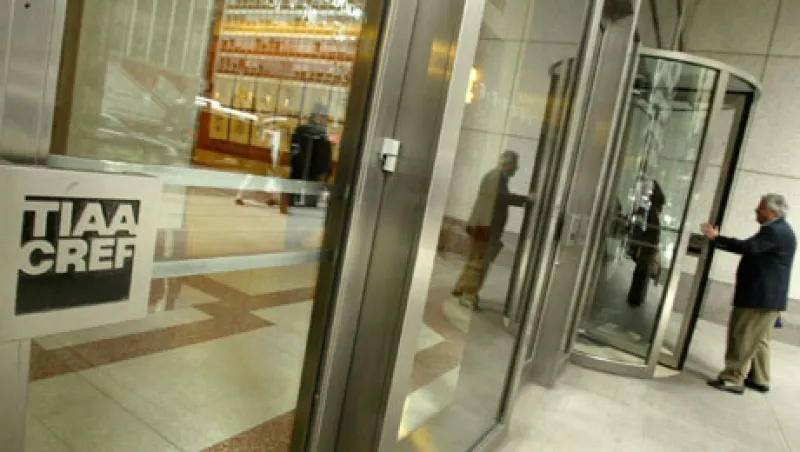
A man enters the building housing the headquarters of TIAA-CREF in New York on Friday, December 19, 2003. Chief Executive Officer Herbert Allison is imposing on the 85-year-old not-for-profit organization a management style he honed on Wall Street. Photographer: Diane Bondareff/Bloomberg News
DIANE BONDAREFF/BLOOMBERG NEWS

